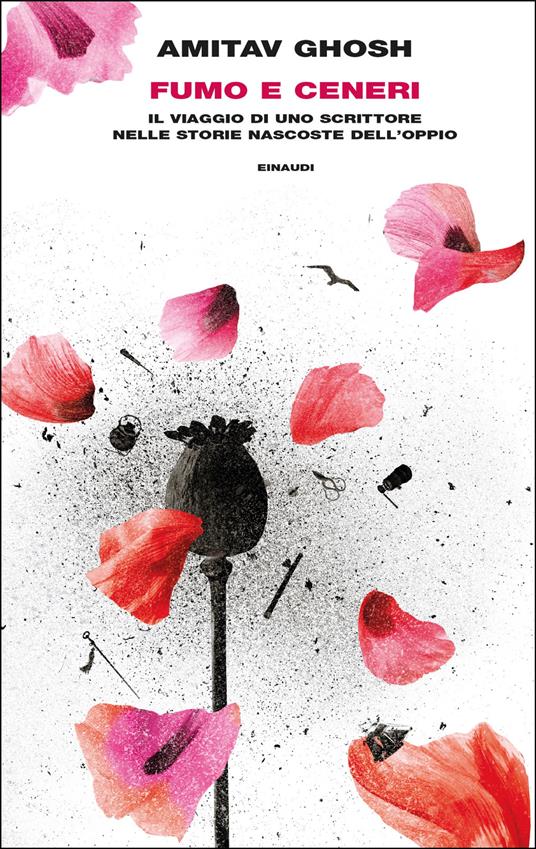Many fortunes arose thanks to the ruin of tens of millions of human lives, to abuses, exploitation and wars in the name of Free Trade. But like the sorcerer’s apprentice, the opium poppy, after contributing to the development of modernity, could today contribute to its decline.
(In the opening image, a Baltimore clipper, by James Edward Buttersworth – Public domain, https://commons.wikimedia.org/w/index.php?curid=173347. Thanks to ships of this model, North Americans developed extensive opium, tea, and when needed slave and labor trafficking “)”
Let’s start from the end and then take a step back. The end is the final phase (at the moment) of a journey and that of a book. The final phase is the one we are living through (terminal of the “Anthropocene or, who knows, transitional towards another epoch), the book is” Smoke and Ashes. A writer’s journey into the hidden stories of opium by Amitav Ghosh (Einaudi, 2025, pp. 395, 22 euros, translation by Norman Gobetti and Anna Nadotti, original title Smoke and Ashes). The step back takes us to the threshold of the modern age.

In the concluding pages of his latest essay-journey (which took him along the routes between India and China, but also between Asia, England and the United States), the internationally renowned writer notes some differences and some similarities between the world history of recent centuries and today. Drug trafficking (which is at the center of the book) is now in the hands of criminal networks and no longer, as we shall see, colonial regimes, even though new technologies like genetically modified super-poppy open up new unthinkable territories for opium plant cultivation and wars, failed states, internal conflicts and climate change favor its cultivation and will make it more difficult to contain opium and its derivatives (p. 307). “The poppy, after being a driving force of modernity – warns Ghosh – will contribute to its decline” (p. 308).



